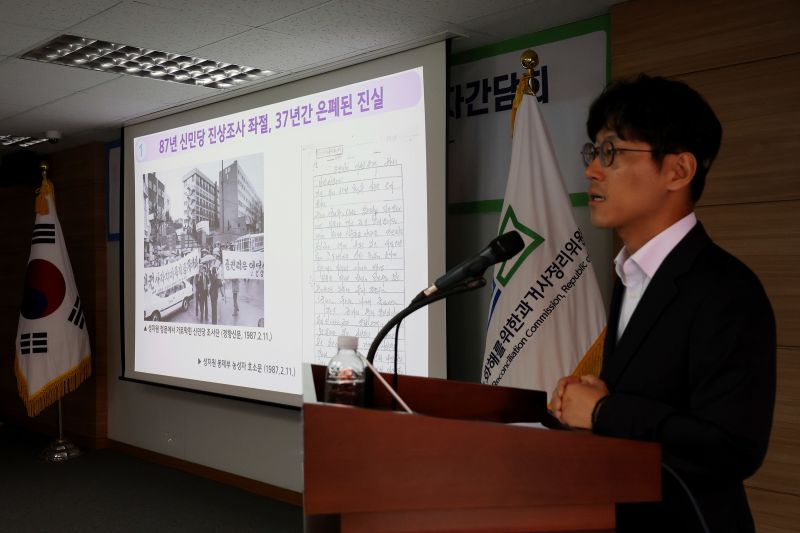South Korea has for decades been known as the world’s largest “baby exporter” – sending hundreds of thousands of children overseas after the country was ravaged by war and many mothers left destitute.
Many of those adopted children, now adults scattered across the globe and trying to trace their origins, have accused agencies of corruption and malpractice, including in some cases forcibly removing them from their mothers.
A report released earlier this week by a Korean government commission supports those claims and uncovers new evidence on the coercive methods used to force mothers to give up their children.
The Truth and Reconciliation Commission, tasked in 2022 with investigating the claims, found that more than a dozen babies in several government-funded care facilities in the 1980s had been forcibly taken to adoption agencies, sometimes “on the day of birth or the next day.”
It examined three care facilities in the cities of Daegu and Sejong where, in 1985 and 1986, 20 children in total were transferred to adoption agencies. Most of those children were adopted overseas in the United States, Australia, Norway and Denmark.
The commission is still investigating cases allegedly involving falsified paperwork. An interim report is expected to publish later this year.
Searching for their roots
More than 200,000 South Korean children have been adopted overseas since the 1950s following World War II and the Korean War, according to authorities. Many of those children were adopted by families in the US and Europe.
While adoptions continue today, the trend has been declining since the 2010s after South Korea amended its adoption laws in an effort to address systematic issues and reduce the number of children adopted overseas.
For a generation of adoptees who have grown up in often homogenous, majority-White populations, some say they feel both disconnected from their Korean roots and unable to fit in. It’s what prompted a search for their biological families.
Some of those adoptees say they have mixed emotions over the commission’s findings, feeling both horror and hope that the investigation will shed light on what many long suspected.
“It’s truly terrifying to hear how systemic these issues were, but I wouldn’t say it’s necessarily surprising,” said Susanné Seong-eun Bergsten, who was adopted from South Korea and grew up in Sweden.
Bergsten’s biological family found her when she was a young adult, and while there was no sign that her paperwork was falsified, she says she can understand the struggles having been involved in advocacy for Korean adoptees.
“Us adoptees, we’re all kind of told, these adoptions are for our own good and we should all feel grateful for escaping poverty,” she said, calling the reality “far more complex.”
“Our adoption papers often lack important information which could give us more context for adoption, like our cultural background, stigma, and the individual struggles that our parents faced in the post-war era,” she said.
“[It] validates what Korean adoptees have known for decades within our community: The narrative that Korean mothers chose of their own volition to relinquish their children is, in all too many cases, a fiction,” he said.
While both Zastrow and Bergsten said it marked a promising step in the right direction, Bergsten urged the government to continue taking accountability and offer reparations to adoptees and their families.
“Adoption touches every level of Korean society, every economic class,” said Zastrow. “There is still much about Korean adoption that has not been formally acknowledged.”

